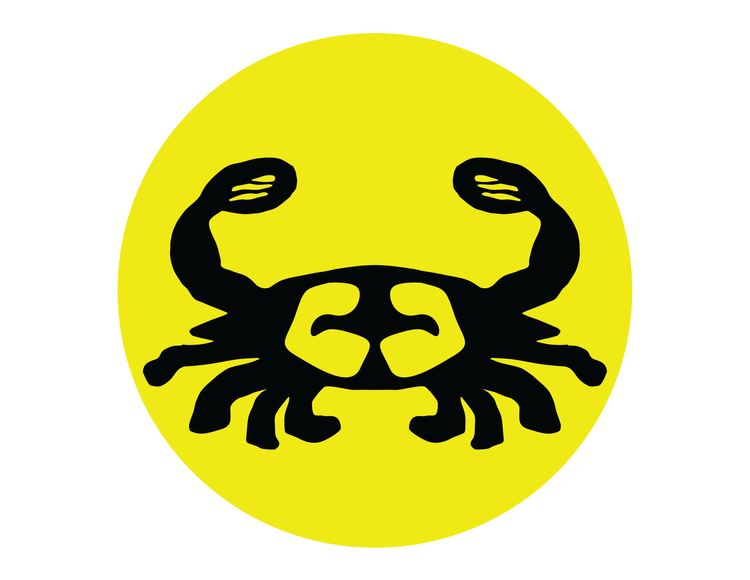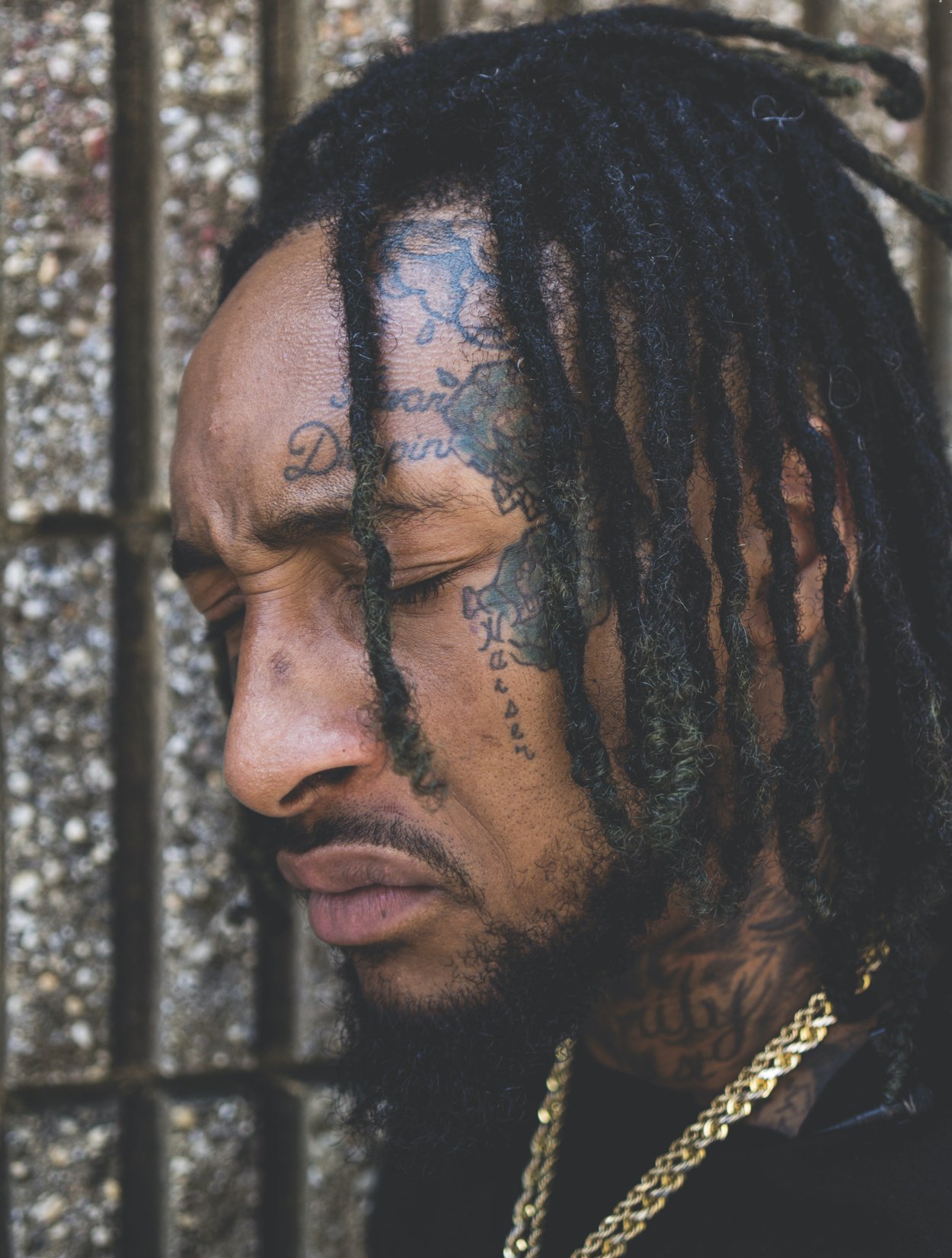Wordy by: Alphonse Pierre
Photos by SHAN Wallace
Shordie Shordie may be the biggest rapper Baltimore has yet to see, but he’s having a relatively mundane day. He’s passing the time by playing Call of Duty: Modern Warfare until he has to help his son with the online school duties thrust upon parents in the pandemic. “These virtual classes some bullshit,” admits the frustrated 24-year-old over FaceTime, in a bedroom with the blinds shut so tight like he’s afraid of the sun. “I don’t understand it, and my son is too young for this shit.” Shordie is grounded, still in touch with everyday life, and hanging around the same parts where he grew up: Baltimore’s Northeast side. He acknowledges that he probably shouldn’t spend as much time in the city as he does because with popularity comes a rise in attention both positive and negative.
Born RaQuan Hudson, Shordie’s connection to Baltimore is too deep to leave for good; he never sounds more at peace than when he’s listing his favorite places in town to grab a bite: Valentino’s, Italiano’s, and East Perry Carryout. Though, you won’t catch Shordie romanticizing his neighborhood. He speaks about how it’s transformed from underdeveloped and defunded, into a family-oriented area. After getting his football playing dreams ripped away from an injury, Shordie turned to the only other thing that seemed comfortable. “In my head it felt like a nigga just told me, ‘You gotta go to the streets,’” he says. He spent most of his days aimless, hanging out with his friends in the park, and trying to find ways to make fast cash.
One day, after he graduated from high school, a freestyle session erupted on the block and turned into Shordie’s friends pushing him into a studio. “I didn’t even fall in love with music; I was falling in love with how niggas was embracing me,” he says, smoking out of his bedroom window. “There wasn’t a lot of niggas rapping in the city, so getting love felt like I had a key to a golden door.” Around the same time, he formed a trio with his brother Lor Dee and his cousin Purp called Peso Da Mafia. In 2017, the crew dropped “Money Man,” a dancing-ass-rap-song, which became a regional hit. “I feel like Money Man, I do the money dance,” Shordie raps with a scratchy-voiced melody on the hook, unleashing a persona with the ceaseless energy of Russell Westbrook’s MVP season. This combination would quickly turn him into a local star.
At the end of 2018, Shordie released his breakout mixtape, Captain Hook. Over melancholy piano beats that sound familiar to the production in the Deep South, Shordie wails, coos, and sometimes even howls stories about heartbreak and struggle. Lyrically, the mixtape resembles records from Lil Baby or Lil Durk, with how easily Shordie swings from lighthearted sex rhymes to gloomy autobiographical stories. “Make money/Chill wit the crew, I really don’t know what we can do/Take money/We used to rob, you move you know we gon shoot,” he raps on “Voice Mail.” It’s like you’re shadowing him through Baltimore. Then, there’s “Focused,” where his life seems like a blur of getting high, hitting up girls, and trying to find ways to secure some bread. No relationship to Baltimore is needed to understand where he’s coming from.
But it was the final track on Captain Hook that would forever engrave him in Baltimore hip-hop lore. Earlier this year at a show in Silver Spring, Maryland, Shordie’s childhood friends appeared from backstage with his platinum plaque for “Bitchuary,” which made him the first Baltimore rapper to have a platinum single. “Real niggas cried,” he admits, reflecting on the moment.
On the surface, “Bitchuary” is pure fun; Shordie lays his croaky and colorful melody over a YG! Beats-instrumental that has the upbeat vibe of a West Coast anthem. You could imagine L.A.’s Shoreline Mafia or Vallejo’s SOB x RBE on the same beat. But it’s the hook that stands out. “‘Cause bitch, you a, bitch, you a/Bitch, you a, bitch, you a, bitch, you a, bitch, you a/Bitch, you a dog and your homegirl too, ayy,” Shordie wails on the chorus: after one listen it’ll be memorized. “Bitchuary” may be a party record, but it was made through pain. “If you slow it down, and I let up on my energy, ‘Bitchuary’ is really a sad song,” says the 24-year-old. “That song was made when I was depressed in Atlanta, going through it, feeling real lonely and overlooked.” The platinum-selling record has a perfect balance: It sounds like a smooth DJ set cheat code, but it’s layered with relatable musings on growing up in a neglected city and being numb to traumatic surroundings — an element present in much of Baltimore’s most popular hip-hop.
Still, the city having major rappers of its own seemed like a pipedream. Shordie can’t exactly pinpoint why the city couldn’t get a rap scene off of the ground, but he does partially blame a mentality that swept through Baltimore. “Niggas have too much pride. If someone has too much going on, people want to stop them,” says Shordie with exasperation. “Baltimore is the murder capital; a lot of time things stop before they get started. Before we couldn’t even have a block party without it getting shot up. But it’s changing now. We can do block parties and niggas don’t bring bad energy. Good things come with that.”
Baltimore’s rap scene finally began to develop solid roots of its own in the 2010s. Dancing-ass-songs, of course, like Lor Scoota’s “Bird Flu” (if we lived in a just world, the boy who hit the dance in the patterned polo would have gotten his own show on Disney) and Young Moose’s “Dumb Dumb” were foundational. Both gave voices to the Black youth of Baltimore, who were finally in control of their own stories. Then there was “Bank Rolls” by Shordie’s older cousin Tate Kobang. Similar to “Bitchuary,” it has an irresistible dance rhythm — it’s produced by Baltimore club artist Rod Lee — and every word that leaves Tate’s mouth is memorable. But it’s deeper; the song feels like you’re on an It’s A Wonderful Life-style tour through Tate Kobang’s hometown. Yet, there was always something around the corner that curbed their momentum, and even Baltimore’s signature rap songs weren’t reaching the heights they should. It was a long and grueling fight to be recognized, which made the success of Shordie Shordie’s platinum record feel like a sigh of relief: a rapper from Baltimore could breakthrough — it was possible.
It wouldn’t be outrageous to say that Captain Hook is one of the stronger rap mixtapes of 2018. Each of the nine tracks is a moment, and it’s since become as foundational to Baltimore’s hip-hop scene as “Bird Flu,” “Dumb Dumb,” and “Bank Rolls” were. “It showed niggas how important projects can be,” says Shordie. “Like one song and visuals are cool, but when you put it on a project it really bangs.”
Aside from a few singles, like 2019’s Shoreline Mafia-assisted “Both Sides,” the mixtape’s success gave Shordie time to follow-up his breakthrough. This past April he put out More Than Music, a brighter and more upbeat project. More Than Music isn’t the same unskippable feat that Captain Hook is, but it does carry some of Shordie’s best songs yet. Most notable is “Save a Little,” where his purposely off-key and nasally voice deliver the gloom: “Come from where the kill and they drill, it’s a lifestyle/Give that a boy a chance and he will do it right now/Cop a couple grands, to get to banging off a trap phone/Feds come round’ now he old when he come home.” Similarly, “L.O.V.” is essential; it’s a bitter love ballad that if sung by an R&B singer might be more dramatic than that time Tyrese threw a tantrum on the floor in the “How You Gonna Act Like That” video. But Shordie’s swagger is too cool and calm for all of that. Though, like countless other artists making music in this time, Shordie’s record has been impacted by the global pandemic. “It’s hard cause I was going to tour and really push this,” shrugs Shordie. “It was a setback for real.”
Regardless of unforeseen obstacles, More Than Music remains another step forward for Baltimore’s hip-hop scene. “It don’t matter if you get a million dollars tomorrow; it don’t matter if you find yourself a nice studio, if you skip them steps you won’t make it,” says Shordie, speaking quickly and passionately about the exciting scene that he has helped build in his city. “As long as I’m alive, it’s up in Baltimore.” The curse has been lifted.




